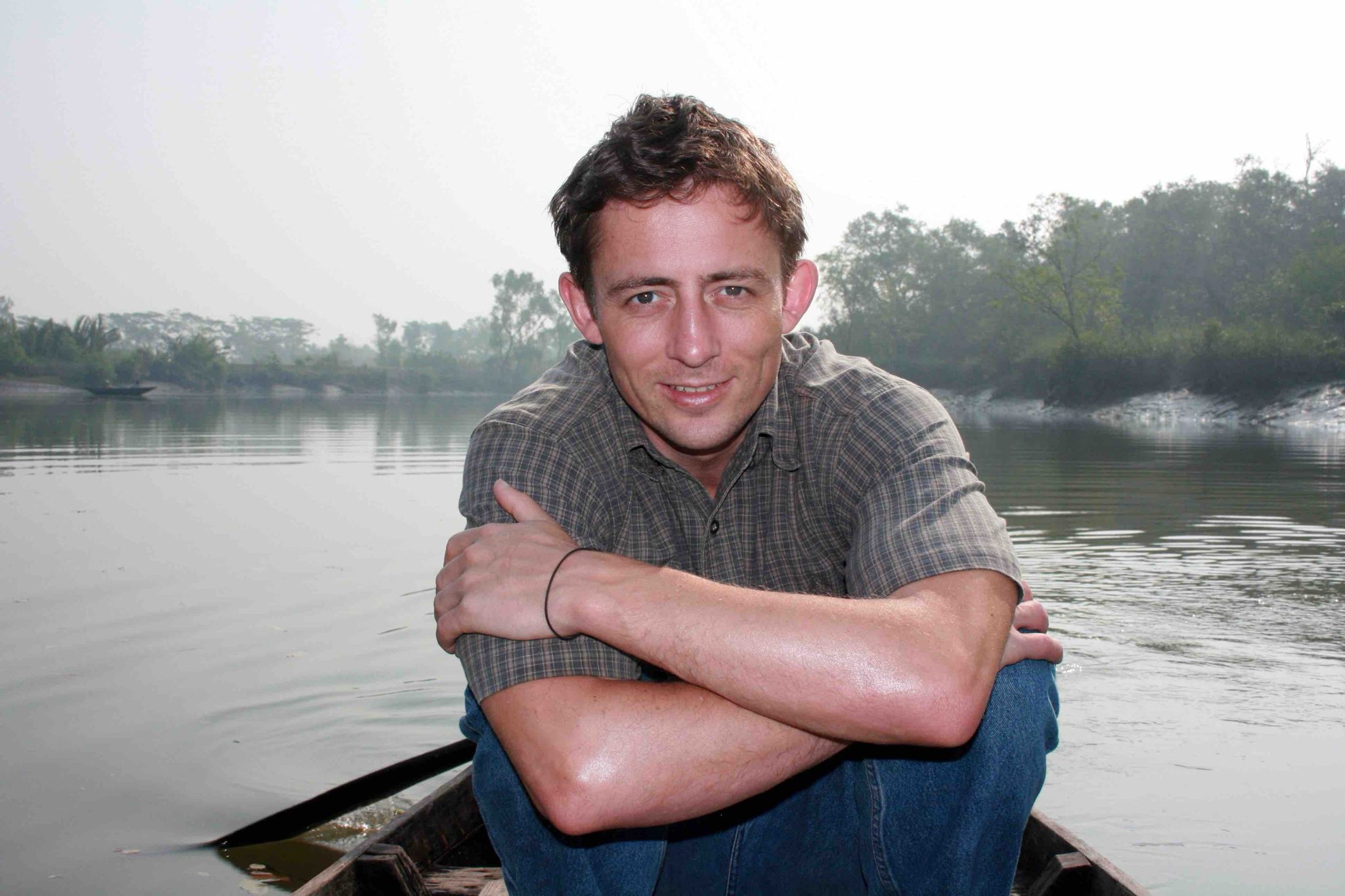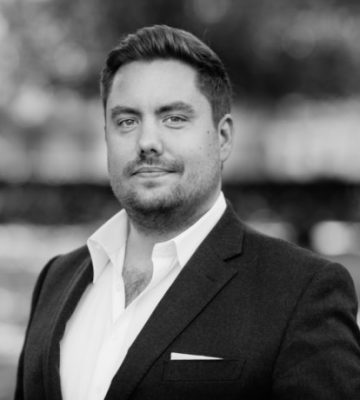Adam Barlow is a founder of WildTeam, a UK charity empowering local leaders to restore our planet. Adam has a PhD in conservation, and over 20 year’s experience designing and delivering projects to help save wildlife across Asia, Africa, and beyond.
Adam believes that there are more than enough motivated people out there to create and implement solutions that bring back our wildlife and tackle climate change. Adam thinks all we have to do is give them the skills and opportunities they need, and then just get out of their way and watch them turn their passion into meaningful change.
As someone who has devoted their professional career to wildlife conservation can you share what deep down has driven you in this direction?
My journey started on a moonlit beach in Crete. I did not want to be here, having been strong-armed into volunteering for a sea-turtle conservation project by an ex-girlfriend. But, as I peered past leathery flippers to see glistening ping pong ball eggs fall into a sandy nest and listened to the long, ancient breaths of the mother sea turtle before me, I had a strange feeling come over me.
Get in the Know
Subscribe to our newsletter
I wasn’t sure what the feeling was exactly; a jumbled-up collection of emotions including big doses of awe and excitement. Whatever the feeling was, I knew, as I walked back to our camp among the trees as the red sun peered over the horizon, that I wanted more of it. I had never felt so connected to the world before.
On this journey what would you say has been the most significant moment or milestone that has shaped the person you are today?
I was leading a survey team, assessing how the tiger population of the Bangladesh Sundarbans (the largest mangrove in the world) was changing over time. We had stopped at a forest guard post in the late afternoon to have a bath, when a small wooden boat approached the jetty. There were three fishermen in it. One was paddling in the back, one was dead and covered with a sheet in the middle, and the other one was in the front, with injuries to his arm and leg. They had been attacked by a tiger while setting out their fishing nets on the bank of a river.
The tide was against them so it would have taken them about a day to get back to any help. We transferred all of them to our motorised survey boat and made our way up river to get them to a doctor, calling our village contacts so that they could meet us, and providing first aid to the injured fishermen on the way. Two hours later, as we reached our destination, we were astonished to see hundreds of villagers lining the banks to receive us. They took our passengers away for care and funeral. The villagers told us that no one had ever helped them like that before.
For the first time I was connected to these people in more than a superficial way, and it dawned on me how something so small as the help we provided could make a big difference to them and their relationship with the forest and tigers.
Every year it seems the pace of change gets ever faster. Against this backdrop how do you ensure you stay adaptable and open to new opportunities?
As a relatively small and dynamic UK charity, we always have to be at the forefront of what we do, ensuring that every conservationist has access to the skills, knowledge and network they need to progress their career and make a meaningful difference for our natural world, no matter who they are or where they are from. That means we are always on a track of continuous improvement.
Through our experience, we know how to scale up or down to match opportunities that enable us to achieve our desired impact. For example, we can easily scale up to work with a partner to create a new conservation course to help those combating wildlife crime. Because we are impact-focused, it also means that it is easy for us to avoid opportunities that, while they may generate funds, may not help us achieve our vision.
We also do not try to do everything. We specialise and partner with other organisations to create holistic solutions, rather than growing into a monster that wants to own the whole territory.
Arguably within every organisation, including those in the charitable sector key decisions often involve taking risks. But what role do you believe risk-taking plays in achieving goals?
Without a high-risk tolerance, there is no way I could have been one of the founders of a UK wildlife charity. Instead of a business where you are generating products and services to generate income, in a charity you need to constantly prove your worth, essentially engaging others to share the same dream as you do, in order to generate funds through grants and donations.
There is almost no room to generate surplus in that system, so you live by hand to mouth. So the moment your story sounds weak is the moment you start to dissolve. I have had to live through many heart attack moments with donors and the pressure never relents throughout the year, but I can live with that constant risk because I know what we do makes a huge difference for restoring nature, combating climate change, and providing benefits to local communities.
What is your personal philosophy when it comes to pursuing your ambitions, and how do you use this to inspire and motivate those around you?
I am 100% cause lead, which means I am not much use to anyone if I am working for just a paycheck, but I will break down every wall in front of me to achieve something I believe in. This approach has led me to build a team of similarly cause-driven people, who come with their own motivation for doing their work. We feed our collective hunger for impact by indulging in the stories of the 1000’s of conservationists around the world and how our training and community support have transformed their careers and work.
Over-coming challenge and displaying resilience is increasingly important. Can you share any setbacks you’ve encountered, and how you’ve used that experience to learn and grow?
I think I faced most challenges during the early part of my career, all of them resulting through a combination of ignorance and youthful arrogance. When I started out in Bangladesh, my working assumption was that if I gave the government good information then the logical consequence of that information would be for them to improve how they managed and protected tigers and their forest home. I spent four years doing that, and although I learnt a lot about tigers in that time, it made limited difference in terms of protecting them.
When I realised this, I switched the focus of our work to empower the local communities so that they could protect the tigers themselves. The difference was night and day. Within a few years we had helped create 49 voluntary “Village Tiger Response Teams” made up of over 350 volunteers. These teams, spread across the forest boundary, protected tigers who would otherwise have been killed when they strayed into a village, and became overall guardians of the forest upon which their communities depended.
Successful people often face challenges in balancing work, commitments and personal life. How do you manage this balance, and what strategies do you use to prevent burnout?
I have very nearly reached burnout once before. The way I avoid it is to have strict and well-defined boundaries between my work and personal life. Outside of work I also need activities that force me to focus on the moment, and leave no space for my mind to drift back to work. This could mean going on a wildlife adventure with my wife and two boys, or being half drowned in the Cornish waves while trying to get better at surfing.
As someone who has dedicated their career to wildlife conservation, what advice do you have to others who are thinking of following in your footsteps?
First of all, just go for it. It is a harder road than most because there are few jobs and the challenges can feel overwhelming, but the rewards far outweigh the difficulties. You will wake up every day wanting to go to work, and go to sleep feeling good about doing your bit to save what you love - what more could you ask for?
The main thing I have learnt is that your whole career will be determined by what you know and who you know. Make sure what you know is what employers are looking for - not just what you are interested in. Reach out and make connections with others on the same journey as you so that you don’t have to go through it alone, and connect with those that have already made it to access opportunities you hadn’t even thought of.
Finally, out of all the causes you’ve been personally involved in or supported, what’s the one project or initiative that you’re most proud of?
That’s a difficult one. Probably equal to the example of the village tiger response teams would be our work to provide training in key skills to aspiring and professional conservationists. So far we have trained over 2,500 conservationists from over 100 countries, supported by a 4,000 strong online community. The amazing people we support have used our skills and the opportunities they accessed through the community to boost their careers and carry out some inspiring conservation work.





